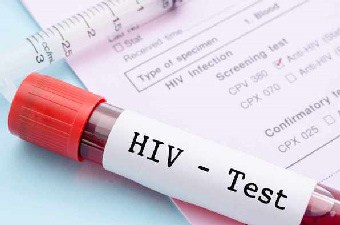Who needs an HIV test? Everyone

By Bob LaMendola – Florida Department of Health in Broward
FT. LAUDERDALE – Don’t be surprised at your next annual checkup if your doctor says she’s giving you an HIV test. She is doing what the Florida Department of Health in Broward County hopes every doctor will do.
DOH-Broward and the Centers for Disease Control and Prevention are asking medical providers to include HIV testing as a routine part of all patients’ blood tests, just like blood sugar, cholesterol and triglycerides.
Routine HIV testing means more people living with HIV will be diagnosed early, can begin treatment quickly, will be healthier and will be less likely to spread the virus. Also, routine testing will help eliminate any stigma on HIV tests.
“Routine testing means that everyone would be offered HIV testing as part of our regular checkups. No one should feel stigmatized,” says Dr. Paula Thaqi, Director of DOH-Broward. “We encourage everyone to ask their doctor for an HIV test.”
The CDC recommends routine testing for all people ages 13 to 65, and others if they engaged in unprotected sex. The CDC began recommending routine testing for some people in 1987 and for everyone starting in 2006.
The CDC and DOH-Broward would like to see routine testing performed by physicians, hospitals (including emergency rooms), clinics and other medical providers.

The way it works is the doctor mentions the HIV test when telling patients what will be covered in their blood work. The test will be done unless the patient specifically declines it – a practice known as opt-out testing.
Not every medical provider participates in routine testing. Some are not aware of the recommendations. Some may feel it is not their job. Some may be too busy to focus on it.
In recent years, DOH-Broward has been educating and encouraging providers and institutions to implement routine testing. As a result, routine testing is on the rise.
A big argument in favor of routine testing is that HIV is spread mainly by people who do not know they contracted it. If they are diagnosed and take medication as directed, the amount of virus in their blood falls to nearly zero – and their chance of transmitting HIV drops by 95 percent.
Preventing the spread of the virus is crucial in South Florida, which has the nation’s highest rate of new HIV cases per capita.
“Knowing your HIV status and getting treatment is one of the best ways we know to prevent HIV and keep our community healthy,” Dr. Thaqi says. “Everyone can do their part by including an HIV test in their routine health care.”
More information: 954-467-4700, Ext. 4991.





